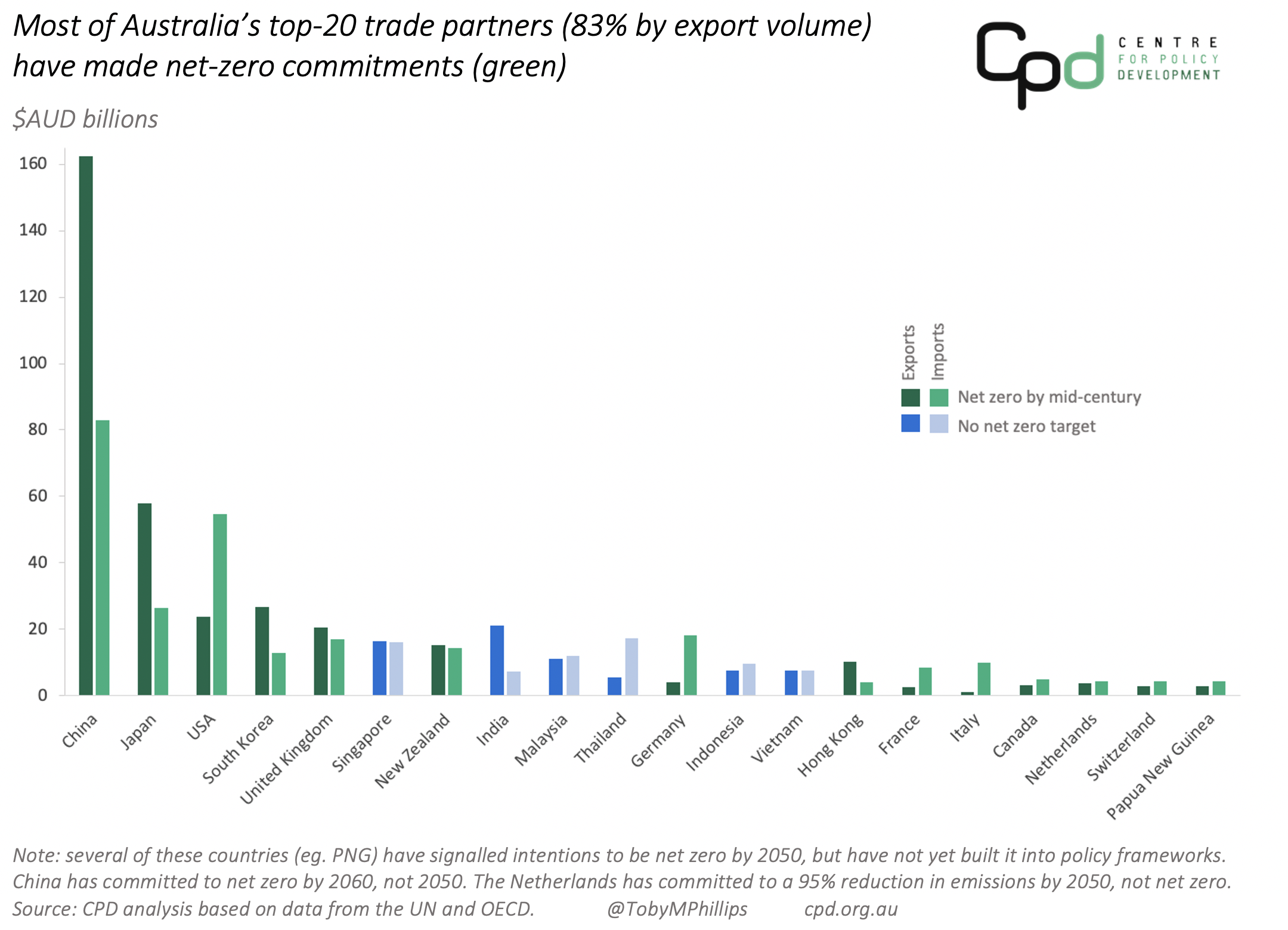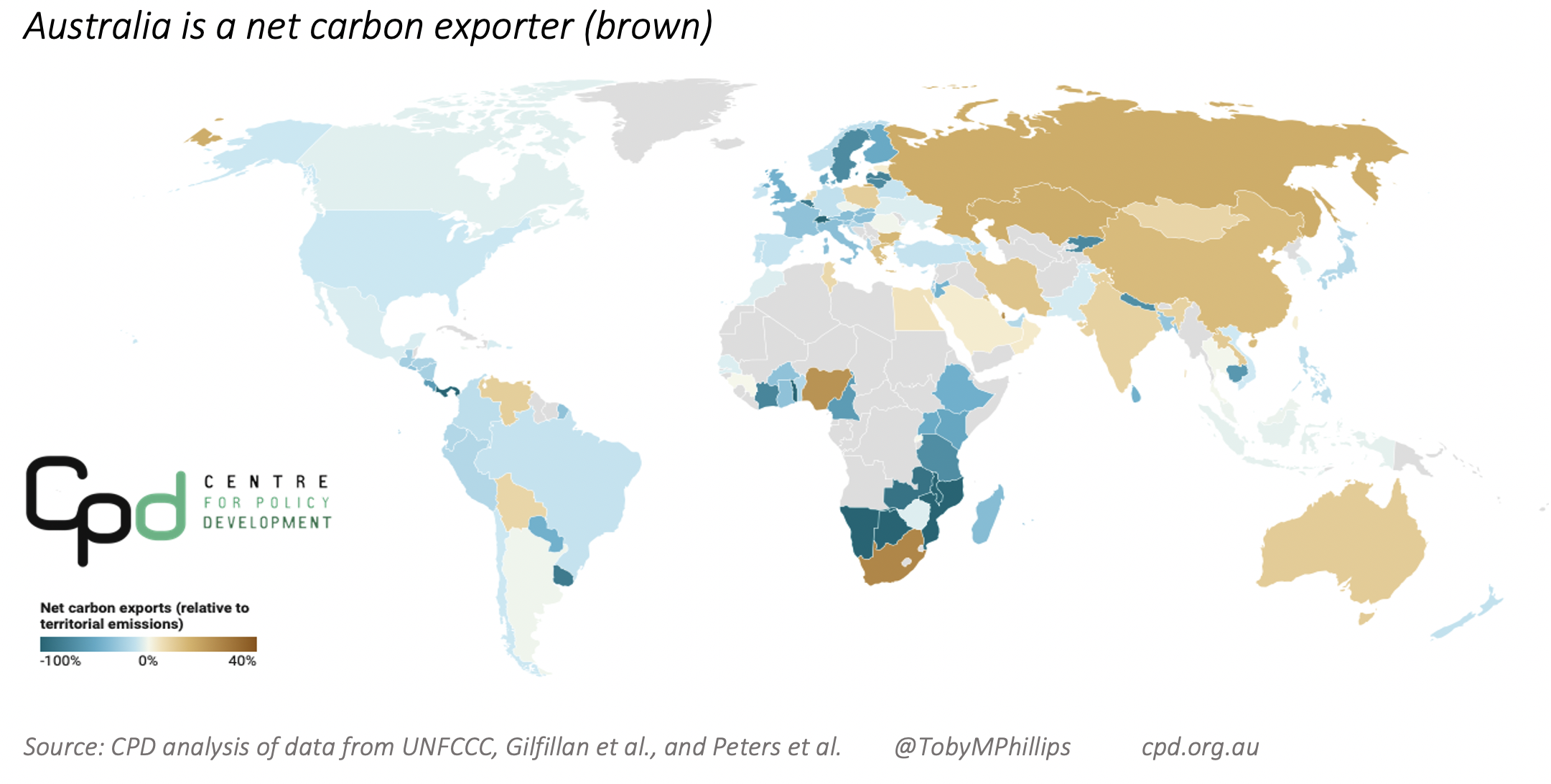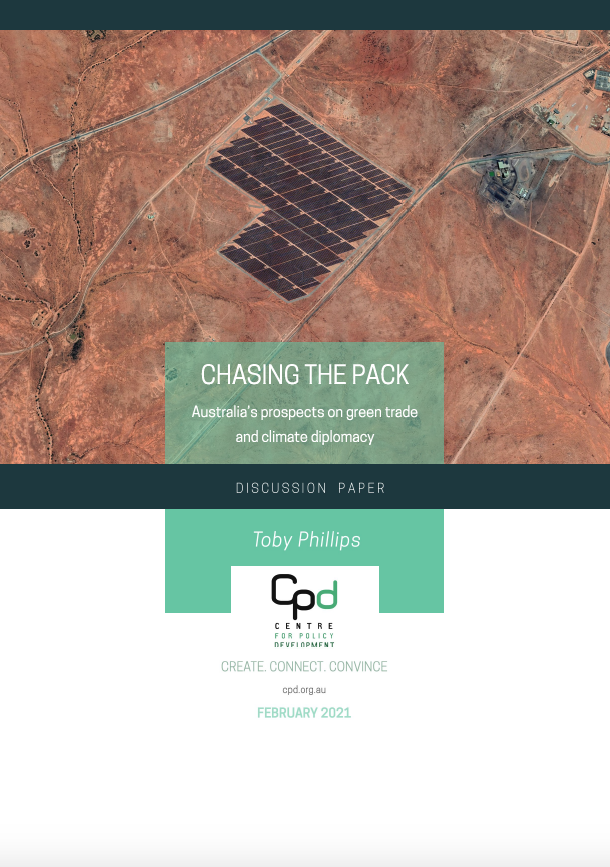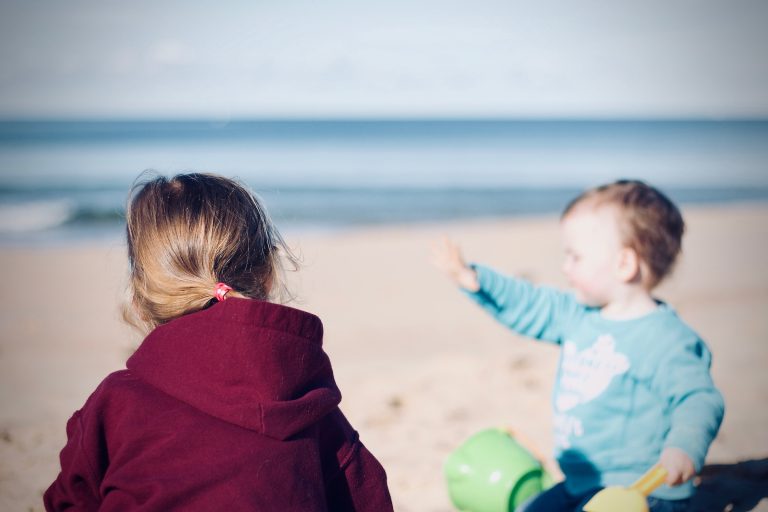In a paper released today by the Centre for Policy Development (CPD), Program Director Toby Phillips analyses how Australia’s immediate economic and diplomatic future could be defined by global activity around climate diplomacy, green trade and low-carbon investment.
“Maintaining Australia’s existing industrial mix is akin to making a big strategic bet that global coal trade will still be booming in 2050.
With a proactive, pro-transition approach, Australia can adroitly shift from one wave of globalisation (the rise of China, demanding iron ore and coal) to another (global decarbonisation).”
Key Points:
- Most of Australia’s main trade partners have made commitments to reach net zero, making its carbon-intensive export profile vulnerable;
- With the rise in climate-centric diplomacy, Australia’s domestic climate policy is putting the country firmly outside the global diplomatic club.
- COVID-19 will likely lead to a sustained multi-year drop in global demand for key industries (such as oil and tourism), but will also bring new opportunities as global value chains are restructured;
- Countries are looking to preferentially favour trade in green goods, providing an opportunity for Australia to build new export industries.
With countries around the world making significant commitments toward achieving net-zero emissions by 2050, the Biden administration’s proactive stance on climate action, including recommitting to the Paris Agreement, and increased global activity around aligning long-term trade plans toward a focus on the emerging renewable energy and green tech sectors, Australia’s existing industrial strategy and current stance on climate diplomacy puts it at risk of falling outside the international status quo.

There is, however, a clear opportunity for Australia to establish itself at the forefront of these new global markets, one that could drive significant economic growth for years to come.
Chasing the Pack: Australia’s prospects on green trade and climate diplomacy takes into account the current state of play when it comes to Australia’s trade position. Despite perceiving itself as a knowledge-based economy, Australia’s global performance is heavily reliant on a narrow set of primary industries. Exporting commodities is not a problem, as long as those commodities remain in high demand. But Australia’s lack of competitiveness in knowledge-intensive industries, in partnership with its status as net exporter of carbon, makes Australia vulnerable to shifts in global demand.

To respond effectively, Australia needs to consider the prevailing global trends around climate diplomacy, green trade and investment. Despite strong signals of decreasing demand for carbon-intensive goods, an increase in preferential trade in low-carbon green goods represents a potential boost to Australia’s economic outlook.
Chasing the Pack also delves into the major global trends and issues currently facing Australia, with particular reference to the COVID-19 pandemic, the Biden administration’s position on green trade, finance and diplomacy, and the status of Australia’s current trade negotiations with the EU and UK (as well as the recently-concluded RCEP).
Finally, the paper considers how Australia’s long-term economic position can be strengthened by diversifying and expanding its industrial base through “producing goods and services that are in demand for decades to come”, with a specific focus on renewable energy, green products, and goods with low embedded carbon.
Does Australia have the wherewithal to claim a seat at the global decarbonisation table? Or, in years to come, will this moment in time be looked upon as a missed opportunity?
Coverage and related work:
Third Climate & Recovery Initiative Stakeholder Roundtable
Climate & Recovery Initiative Public Forum
Further reading:
Building a private finance system for net zero, November 2020
China aims to cut net carbon-dioxide emissions to zero by 2060, The Economist, September 2020




